
Introduction to Phobjikha Valley:
Nestled in the heart of Bhutan, Phobjikha Valley, also known as Gangtey Valley, beckons travelers with its breathtaking landscapes and serene ambiance. This expansive bowl-shaped glacial valley, formed by ancient glaciers, offers a picturesque setting for visitors to immerse themselves in the raw beauty of nature. Surrounded by the majestic Black Mountains and dotted with miles of flat fields, Phobjikha Valley is a haven for nature enthusiasts and trek lovers alike.
Location and Accessibility:
Located in Central Bhutan, Phobjikha Valley stands as a testament to the country’s untouched natural beauty. Approximately 135 kilometers from Thimphu, the capital city, and 80 kilometers from Punakha, the former capital, the valley is accessible by road. While no direct buses run to Phobjikha, travelers can hire cars or rely on buses to nearby towns like Trongsa and Bumthang, from where they can embark on a short detour to reach the valley.
Journey to Phobjikha Valley:
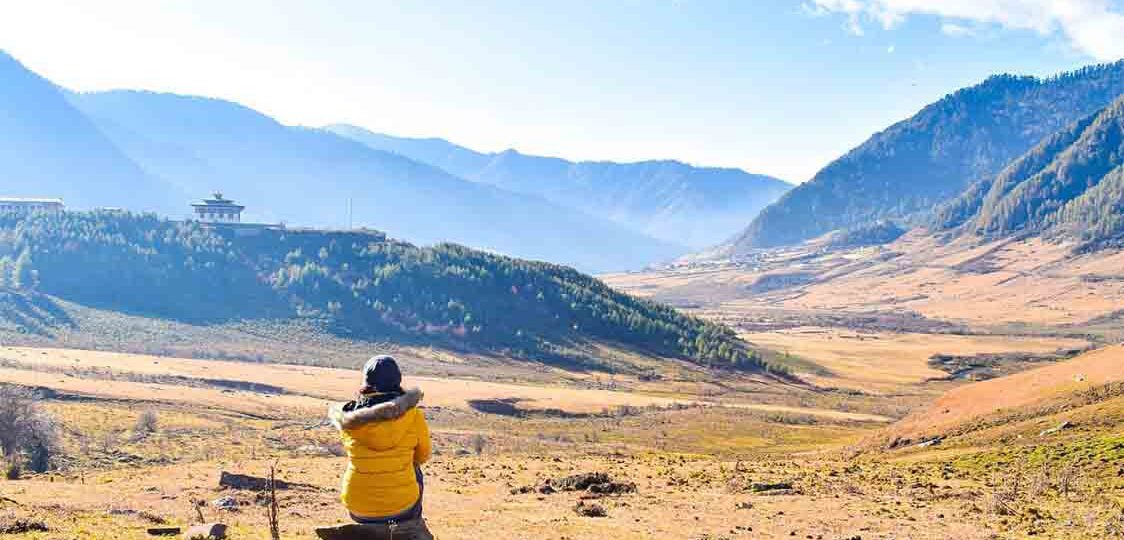
The journey from Thimphu to Phobjikha Valley is an adventure in itself. Travelers traverse winding roads, passing through lush forests, crossing rivers, and ascending to higher altitudes. Stops at scenic viewpoints like Dochula Pass offer glimpses of Bhutan’s natural grandeur, while the gradual descent into Phobjikha Valley reveals panoramic vistas of green pastures and vibrant rhododendron forests. Along the way, encounters with local wildlife and herding yaks add to the enchantment of the journey.
Homestay Experience:
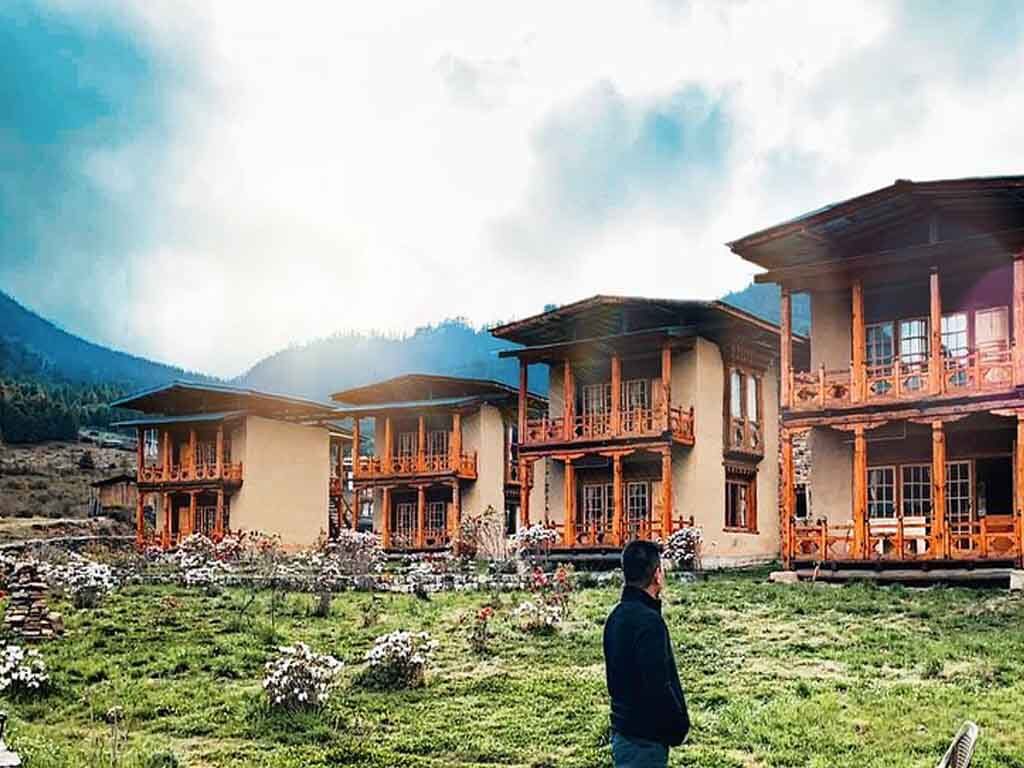
Immersing in the local culture, travelers often opt for homestays in Phobjikha Valley. These traditional Bhutanese farmhouses offer cozy accommodations amidst picturesque surroundings. With simple amenities and warm hospitality, homestays provide an authentic glimpse into the daily life of Bhutanese families. Guests can enjoy delicious home-cooked meals, cozy up beside tandoor heaters, and engage in meaningful interactions with their hosts, despite language barriers.
Exploring the Village Life:
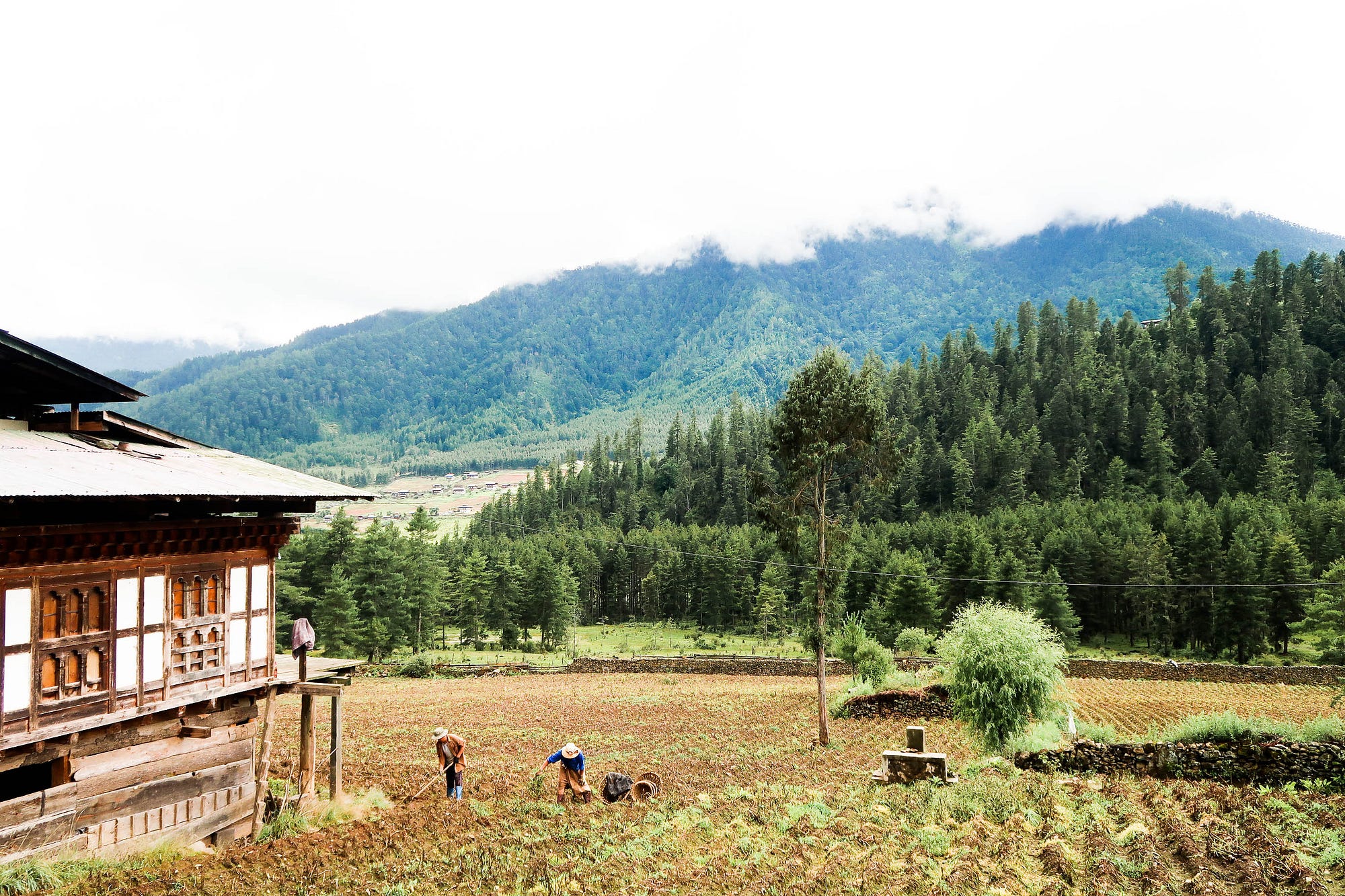
Wandering through the quaint villages of Phobjikha Valley, travelers encounter a lifestyle deeply intertwined with nature. Colorful wooden houses, adorned with intricate carvings, stand against a backdrop of rolling hills and meandering streams. The semi-nomadic villagers, primarily farmers, lead a simple yet fulfilling life, practicing sustainable agriculture and preserving their cultural heritage. Strolls through the village reveal charming sights, from flowering gardens to bustling schoolyards adorned with fluttering Buddhist flags.
Black-necked Cranes:
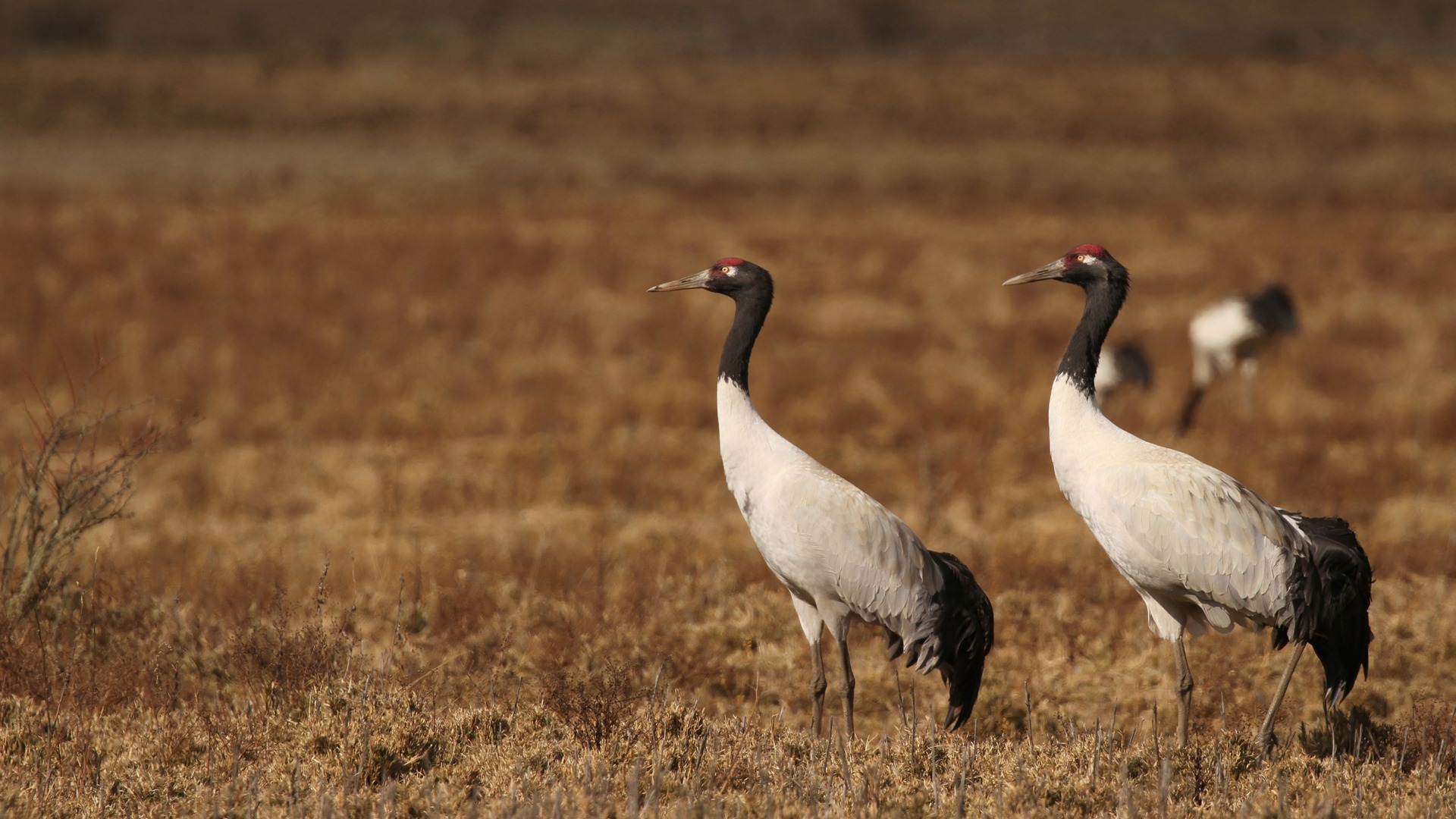
A highlight of Phobjikha Valley is its role as a sanctuary for rare migratory birds, the black-necked cranes. Every winter, these majestic birds migrate from Tibet to Phobjikha Valley, seeking refuge in its marshy lands and dwarf bamboo groves. The valley’s conservation efforts, led by organizations like the Royal Society for Protection of Nature, have helped preserve the habitat of these endangered cranes. Visitors can witness their graceful presence and learn about their significance through interpretive centers and guided tours.
Gangtey Monastery:
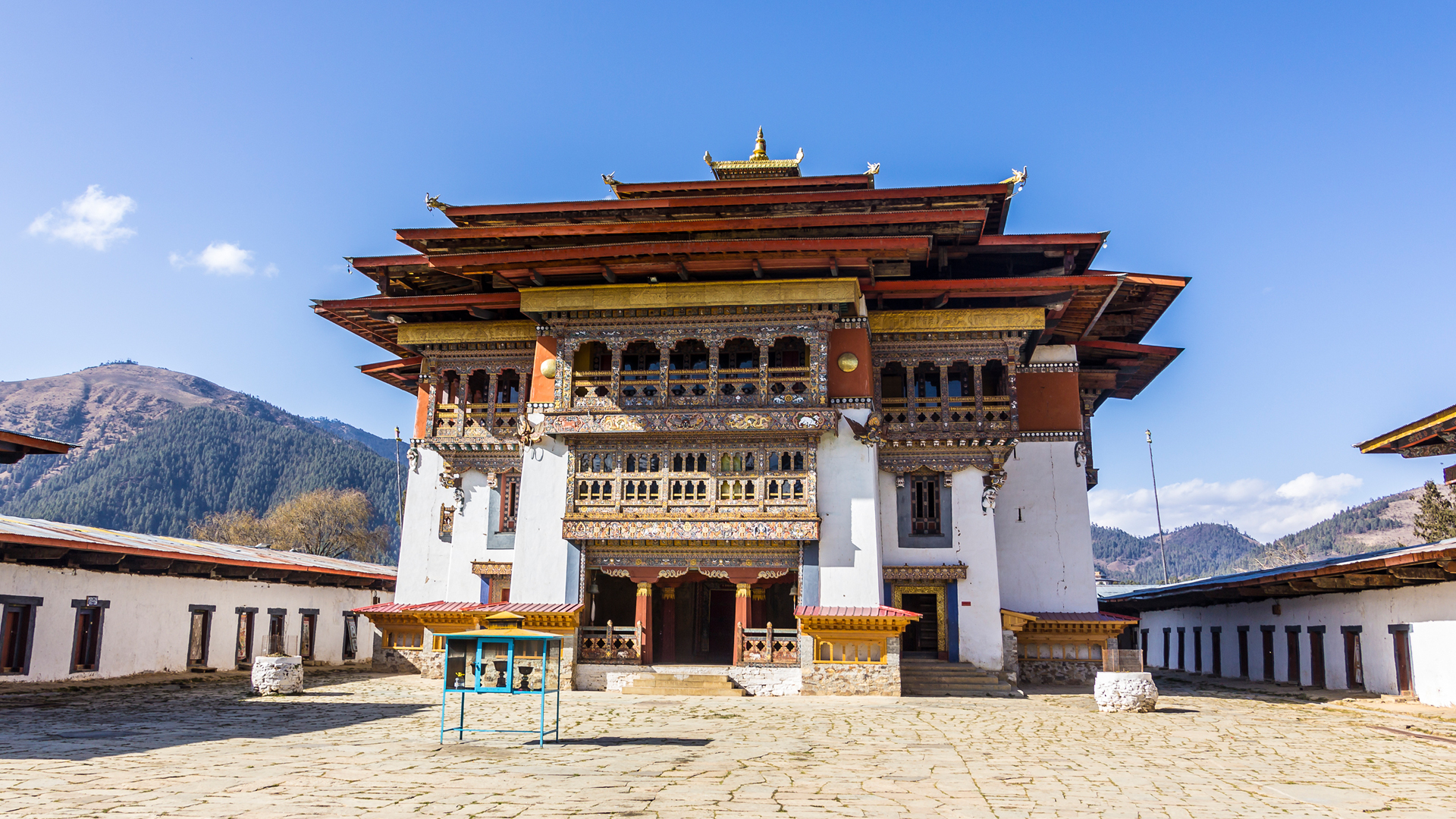
Perched atop a hill ridge overlooking the valley, Gangtey Monastery stands as a symbol of spiritual serenity. Dating back to the 17th century, this revered Nyingma monastery exudes an aura of tranquility and devotion. Its colorful façade, adorned with intricate sculptures and vibrant paintings, invites pilgrims and travelers alike to explore its sacred halls and meditative spaces. The monastery hosts annual festivals, including the Crane Festival, where masked dances and cultural performances celebrate the harmony between nature and spirituality.
Activities and Trekking Trails:

Phobjikha Valley offers ample opportunities for outdoor adventures and exploration. Visitors can embark on scenic hikes along the Gangtey Nature Trail, immersing in the beauty of pine forests and ancient temples along the way. For those seeking a deeper connection with nature, multi-day treks like the Phubja Valley Trek provide an immersive experience amidst pristine landscapes and cultural heritage sites.
Conclusion:
A visit to Phobjikha Valley is not merely a journey but an odyssey through Bhutan’s natural and cultural treasures. From tranquil homestays to majestic monasteries, from vibrant village life to serene nature trails, the valley captivates travelers with its unparalleled beauty and rich heritage. Whether witnessing the flight of black-necked cranes or embracing the warmth of Bhutanese hospitality, every moment in Phobjikha Valley is a testament to the country’s harmonious coexistence with nature.

